Vitamins for Anxiety
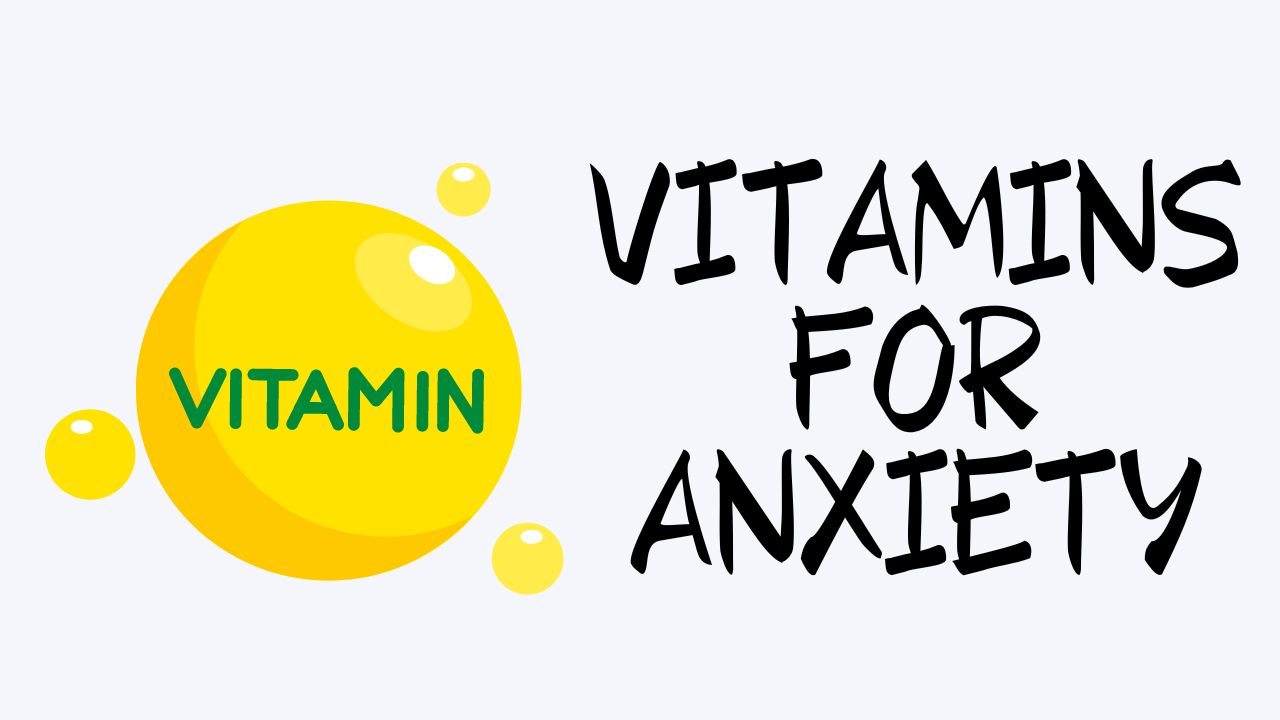
If you're experiencing anxiety, it's crucial to understand that you are not alone. Amidst life's challenges, it's normal to feel anxious at times. However, beyond traditional therapies and medications, there's a natural ally that can be incredibly supportive: vitamins. Embarking on a journey to soothe your anxiety can lead you to a more serene state of mind, and the right vitamins can play a significant role in this process.
In this informative piece, we will delve into the pivotal vitamins that hold the power to mitigate anxiety symptoms, offering a natural avenue to regain balance and tranquility in your life. These vitamins aren't a cure-all, but integrating them into your daily regimen can provide a valuable boost to your mental health. Let's explore these anxiety-alleviating vitamins that could help fortify your mental wellbeing.
Overview of Vitamins and Anxiety
Anxiety is a common mental health condition that affects millions of individuals worldwide. While professional help is essential in managing anxiety, incorporating vitamins into one's daily routine can provide additional support in alleviating its symptoms.

Vitamins play a crucial role in our overall health and well-being, and they can also have a significant impact on anxiety management. Certain vitamins have been found to help regulate neurotransmitters and reduce stress levels, resulting in a decrease in anxiety symptoms.
Vitamin B complex, for instance, is known for its beneficial effects on mental health. It improves mood, boosts energy levels, and reduces stress and anxiety. Good sources of vitamin B complex include whole grains, leafy greens, lean meats, and fish.
Vitamin D is another important vitamin in anxiety management. Low levels of vitamin D have been linked to increased risks of anxiety and depression. Supplementing with vitamin D can improve mood and reduce anxiety symptoms.
Omega-3 fatty acids, commonly found in fish oil, have also shown positive effects on anxiety. These fatty acids support brain health and reduce inflammation in the body, which is often associated with anxiety.
Lastly, magnesium deficiency has been found to contribute to anxiety symptoms. Supplementing with magnesium can calm the nervous system, promote relaxation, and reduce anxiety.
Role of Vitamins in Managing Anxiety
Vitamins play a crucial role in managing anxiety by supporting the proper functioning of the nervous system and promoting overall mental well-being. Vitamin B complex, for example, helps regulate neurotransmitters in the brain, such as serotonin and dopamine, which are responsible for mood regulation. By ensuring an adequate intake of vitamin B complex, individuals may experience improved mood, reduced stress, and decreased anxiety symptoms.
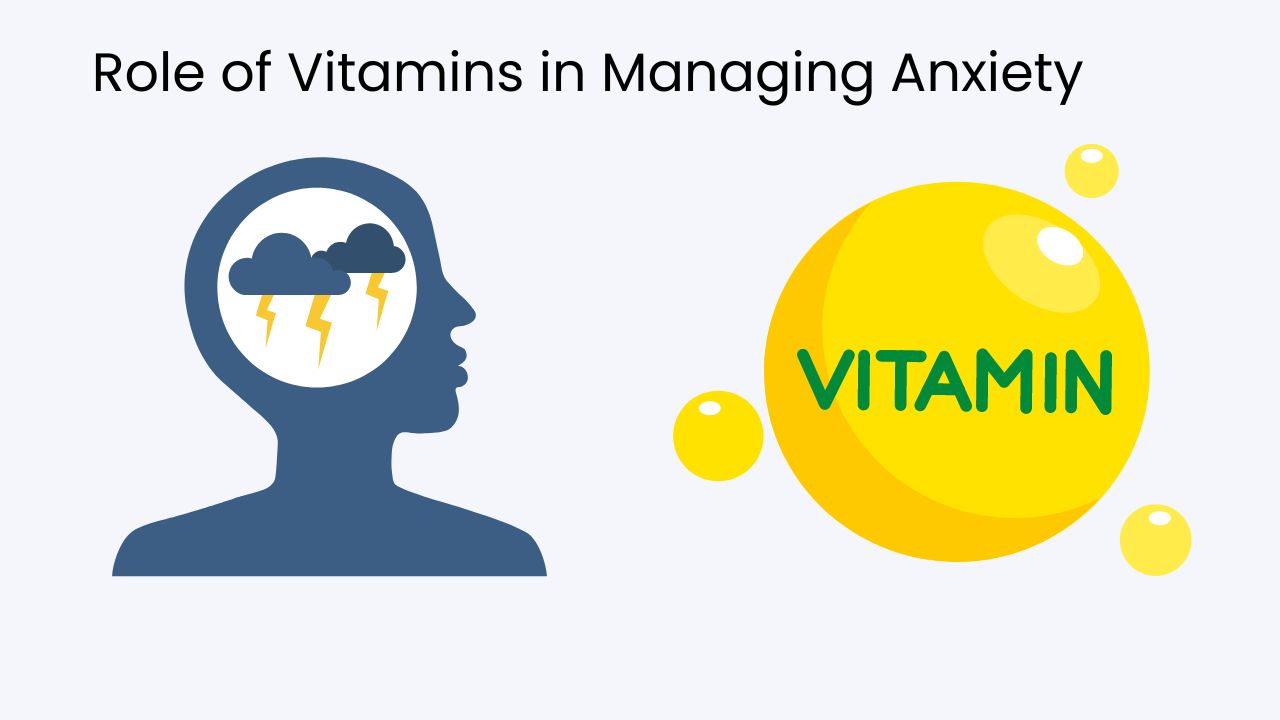
Vitamin D is another essential nutrient in anxiety management. Low levels of vitamin D have been associated with an increased risk of anxiety and depression. Supplementing with vitamin D can improve mood and alleviate anxiety symptoms.
Omega-3 fatty acids, found in fish oil, have anti-inflammatory properties and promote optimal brain health. These fatty acids have been shown to reduce anxiety symptoms and improve overall mental well-being.
Lastly, magnesium deficiency has been linked to anxiety symptoms. Supplementing with magnesium can calm the nervous system, promote relaxation, and reduce anxiety.
Incorporating these vitamins into one's daily routine can provide additional support in managing anxiety. However, it is important to consult with a healthcare professional to determine the appropriate dosage and ensure any potential interactions or side effects are considered.
Vitamin B Complex for Anxiety
Vitamin B complex is a group of essential vitamins that are known for their role in promoting mental well-being and managing anxiety symptoms. Consisting of eight B vitamins, including B1 (thiamine), B2 (riboflavin), B3 (niacin), B5 (pantothenic acid), B6 (pyridoxine), B7 (biotin), B9 (folate), and B12 (cobalamin), this complex of vitamins plays a crucial role in supporting the proper functioning of the nervous system and regulating mood.

One of the key benefits of vitamin B complex for anxiety is its ability to regulate neurotransmitters in the brain, such as serotonin and dopamine, which are essential for maintaining a stable mood and reducing anxiety. By ensuring an adequate intake of vitamin B complex, individuals may experience improved mood, reduced stress, and decreased anxiety symptoms.
Best sources of vitamin B complex include whole grains, legumes, leafy green vegetables, nuts, and seeds. However, for those who may have difficulty obtaining sufficient amounts of these foods, vitamin B complex supplements are available to provide a convenient and effective way to support mental well-being and manage anxiety. It is always recommended to consult with a healthcare professional to determine the appropriate dosage and ensure any potential interactions or side effects are considered.
Benefits of Vitamin B Complex
Vitamin B complex offers several benefits for managing anxiety and promoting mental well-being.
Firstly, vitamin B complex plays a crucial role in regulating neurotransmitters in the brain, including serotonin and dopamine, which are essential for maintaining a stable mood. By ensuring an adequate intake of vitamin B complex, individuals may experience improved mood, reduced stress, and decreased anxiety symptoms.
Additionally, vitamin B complex helps support the proper functioning of the nervous system. It aids in the production of red blood cells and promotes the conversion of food into energy, which can help combat fatigue and enhance overall cognitive function.
Furthermore, vitamin B complex supports healthy brain function and memory. It helps in the synthesis of DNA and RNA, crucial for proper brain development and communication between brain cells.
Overall, incorporating vitamin B complex into your daily routine can provide significant benefits for managing anxiety and promoting mental well-being. Whether through dietary sources or supplements, ensuring adequate intake of these essential vitamins is essential for optimal mental health.
Best Sources of Vitamin B Complex for Anxiety Relief
Vitamin B complex is an essential nutrient for managing anxiety and promoting mental well-being. Incorporating sources of vitamin B complex into your diet can help alleviate anxiety symptoms and support overall mental health. Here are two of the best sources of vitamin B complex for anxiety relief:

- Dark leafy greens: Foods like spinach, kale, and Swiss chard are rich in B vitamins, particularly B9 (folate) and B6. These vitamins are essential for the synthesis of neurotransmitters that regulate mood, such as serotonin and dopamine. Including dark leafy greens in your diet can provide a natural boost to your B vitamin intake and help manage anxiety.
- Whole grains: Whole grains like brown rice, quinoa, and oats are excellent sources of various B vitamins, including B1 (thiamine), B3 (niacin), and B6. These vitamins play a vital role in converting food into energy and supporting brain function. By incorporating whole grains into your meals, you can ensure a steady supply of B vitamins and promote a calm and balanced mental state.
Incorporating these nutrient-dense foods into your daily diet can support your mental well-being and help alleviate anxiety symptoms. Remember to consult with a healthcare professional for personalized advice and guidance on incorporating vitamin B complex into your dietary regimen.
- Healthline: "B-Complex Vitamins: Benefits, Side Effects, and Dosage"
- National Center for Biotechnology Information: "A Systematic Review of Nutrient Intake and Food Sources of Different Populations with Anxiety Symptoms: An Update"
Vitamin D for Anxiety Management
Vitamin D, often referred to as the "sunshine vitamin," plays a crucial role in mental health, including anxiety management. Research has shown a correlation between low levels of vitamin D and increased symptoms of anxiet.
Supplementing with vitamin D has been found to be effective in improving anxiety symptoms. In a randomized controlled clinical study, participants who received 1600 mg of vitamin D for six months experienced a significant reduction in anxiety.
Vitamin D helps regulate neurotransmitters in the brain, such as serotonin, which plays a crucial role in mood regulation. It also supports the production of anti-inflammatory compounds that can help alleviate anxiety.

Incorporating vitamin D into your anxiety management regimen can be done through sunlight exposure or by taking supplements. It's important to consult with a healthcare professional to determine the appropriate dosage and monitoring of your vitamin D levels for optimal anxiety management.
Importance of Vitamin D in Mental Health
Vitamin D is not only essential for bone health but also plays a crucial role in mental health. Numerous studies have shown a correlation between low levels of vitamin D and increased symptoms of anxiety and depression. Vitamin D helps regulate neurotransmitters in the brain, such as serotonin, which is responsible for mood regulation. It also supports the production of anti-inflammatory compounds that can alleviate anxiety.
Furthermore, vitamin D receptors are found in areas of the brain that are associated with the development and regulation of emotions. This suggests that vitamin D may have a direct impact on mental well-being.
Low vitamin D levels have been linked to an increased risk of developing mental health disorders, and supplementation has been shown to improve symptoms. However, it is important to consult with a healthcare professional to determine the appropriate dosage and monitoring of vitamin D levels for optimal mental health. Vitamin D should be considered as part of a comprehensive approach to managing anxiety and depression.
Overall, maintaining adequate vitamin D levels is crucial for supporting mental well-being and managing anxiety.
Supplementing with Vitamin D for Anxiety Symptoms
Supplementing with Vitamin D can be an effective approach for managing anxiety symptoms. Low levels of Vitamin D have been associated with an increased risk of developing anxiety disorders. By addressing this deficiency, individuals may experience improvements in their mental health.
Research has shown that Vitamin D supplementation can help alleviate anxiety symptoms. In a clinical study, participants who received 1600 mg of Vitamin D daily for six months reported significant reductions in anxiety levels. This suggests that Vitamin D plays a role in regulating mood and emotions.
When considering supplementing with Vitamin D, it is important to consult with a healthcare professional to determine the appropriate dosage. They can evaluate your individual needs and recommend the best course of action. Regular monitoring of Vitamin D levels is also crucial to ensure that you are maintaining optimal levels for anxiety management.
In addition to supplementation, it is important to incorporate other anxiety management strategies such as regular exercise, stress reduction techniques, and a healthy diet. Vitamin D should be seen as one component of a comprehensive approach in managing anxiety symptoms.
Omega-3 Fatty Acids for Anxiety Relief
Omega-3 fatty acids have shown promise in relieving anxiety symptoms. Researchers have found that high doses of omega-3s, up to 2000 mg a day, can significantly reduce anxiety symptoms in individuals. These fatty acids, typically derived from fish oil, have various biological effects in the body.

Omega-3s have been found to have preventive and therapeutic effects on psychiatric disorders like anxiety and depression. They can also be beneficial for individuals with comorbid medical conditions. For instance, patients with coronary heart disease or pregnant women may benefit from omega-3 supplementation to manage anxiety symptoms.
The mechanisms by which omega-3 fatty acids alleviate anxiety are not fully understood, but they are thought to play a role in reducing inflammation, modulating neurotransmitter function, and improving overall brain health.
To incorporate omega-3s into your diet, it is recommended to consume fatty fish like salmon, mackerel, and sardines. Fish oil supplements are also available. However, it is important to consult with a healthcare professional to determine the appropriate dosage and ensure they do not interact with any medications.
Incorporating omega-3 fatty acids into your diet can be a natural and effective way to manage anxiety symptoms.
How Omega-3 Fatty Acids Impact Anxiety
Omega-3 fatty acids have been found to have a significant impact on anxiety. These essential fats play a crucial role in maintaining brain health and neurotransmitter function.
Research suggests that omega-3 fatty acids can reduce inflammation in the brain, which is often linked to anxiety and other mental health disorders. They also help regulate the levels of neurotransmitters like serotonin, which plays a key role in mood regulation.
Additionally, omega-3 fatty acids promote the production of brain-derived neurotrophic factor (BDNF), a protein that supports the growth and development of new brain cells. This can help improve overall brain function and reduce anxiety symptoms.
Several clinical trials have shown that high doses of omega-3s can significantly reduce anxiety symptoms in individuals. However, it is important to note that results may vary, and it is best to consult with a healthcare professional before incorporating omega-3 supplements into your routine.
Incorporating Omega-3s into Your Diet for Anxiety Management
Incorporating omega-3 fatty acids into your diet is an effective way to manage anxiety. Including foods that are rich in omega-3s can provide your body with the necessary nutrients to reduce inflammation and promote optimal brain function.
Some excellent sources of omega-3s include fatty fish like salmon, mackerel, and sardines. These types of fish are not only delicious but also packed with omega-3 fatty acids. Vegetarian options like chia seeds, flaxseeds, and walnuts are also great choices.
To ensure you're getting enough omega-3s, aim to include these foods in your diet at least twice a week. You can experiment with different recipes and preparations to make them more enjoyable.
If it's not feasible to include these foods in your diet, omega-3 supplements are a convenient alternative. Consult with a healthcare professional to determine the appropriate dosage and type of supplement that suits your needs.
Remember, consistency is key when it comes to incorporating omega-3s into your diet for anxiety management. Stick to a balanced and nutrient-rich eating plan to maximize the benefits.
Magnesium and its Effects on Anxiety
Magnesium is an essential mineral that plays a crucial role in various bodily functions, including brain health. Research suggests that magnesium deficiency may be associated with increased anxiety symptoms. Supplementing with magnesium can have a significant impact on anxiety levels.
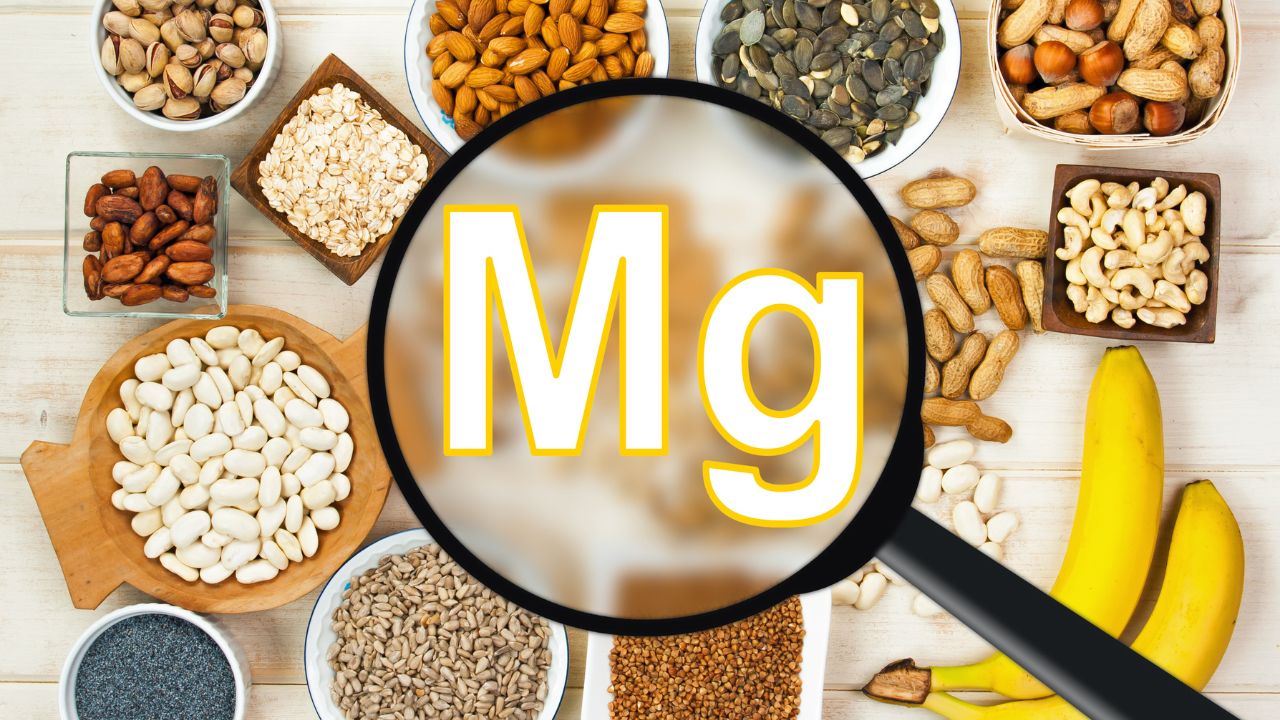
One study showed that a daily supplement of 200 mg of magnesium, combined with 50 mg of vitamin B6, effectively reduced anxiety-related premenstrual symptoms. Another clinical trial found that zinc and magnesium supplements improved postpartum depression and anxiety symptoms.
Magnesium is believed to regulate cortisol levels, a stress hormone that, when elevated, can worsen anxiety and depression. By maintaining optimal cortisol levels, magnesium can help alleviate anxiety symptoms.
In addition to supplements, magnesium-rich foods such as spinach, almonds, and avocados can be incorporated into the diet to support anxiety management.
It is important to consult with a healthcare professional before starting any magnesium supplementation regimen, as they can provide personalized dosage recommendations based on individual needs.
Magnesium Deficiency and Anxiety
Magnesium is an essential mineral that plays a crucial role in various bodily functions, including brain health. Research suggests that magnesium deficiency may be associated with increased anxiety symptoms. A lack of magnesium can disrupt the activity of neurotransmitters that regulate mood, leading to feelings of anxiety and stress.
Studies have shown that individuals with anxiety disorders often have lower levels of magnesium in their bodies. Magnesium plays a role in regulating the release of stress hormones, such as cortisol, and helps maintain healthy serotonin levels, which are important for mood regulation.
Additionally, magnesium deficiency can contribute to muscle tension and restlessness, which are common symptoms of anxiety. This mineral is involved in muscle relaxation and can help reduce the physical symptoms associated with anxiety, such as tightness in the chest or racing heartbeat.
Supplementing with magnesium can have a significant impact on anxiety levels and promote a sense of calm and relaxation. However, it is important to consult with a healthcare professional before starting any magnesium supplementation regimen, as they can provide personalized dosage recommendations based on individual needs.
Using Magnesium Supplements for Anxiety Relief
Using magnesium supplements can be an effective way to alleviate anxiety symptoms. Magnesium plays a crucial role in regulating neurotransmitters and stress hormones, making it a valuable tool in anxiety management.
Magnesium supplements are available in various forms, such as magnesium citrate, magnesium oxide, and magnesium glycinate. However, research suggests that magnesium taurate and magnesium glycinate may be the best options for anxiety relief. These forms have higher bioavailability and are better absorbed by the body, maximizing their potential benefits.
When incorporating magnesium supplements into your routine, it is important to follow dosage guidelines recommended by healthcare professionals. They can provide personalized advice based on your individual needs. It is also advisable to start with a lower dosage and gradually increase it, as excessive magnesium intake can cause gastrointestinal issues.
Conclusion and Recommendations
In conclusion, vitamins play a crucial role in managing anxiety symptoms. The combination of Vitamin B complex, Vitamin D, omega-3 fatty acids, and magnesium can significantly alleviate anxiety and promote mental well-being.
Vitamin B complex has been shown to improve mood and reduce stress levels. It is important to incorporate foods rich in Vitamin B, such as whole grains, leafy greens, and lean meats, into your diet or consider taking a B complex supplement.
Vitamin D deficiency has been linked to increased anxiety, so ensuring adequate sun exposure or taking a Vitamin D supplement can be beneficial. Omega-3 fatty acids found in fatty fish and flaxseeds have also been shown to reduce anxiety and promote brain health.
Magnesium supplements can effectively regulate neurotransmitters and support stress hormone regulation, contributing to anxiety relief. However, it is essential to consult with a healthcare professional before starting any new supplements.
Incorporating these vitamins and supplements into your daily routine, along with a balanced diet and regular exercise, can further optimize their benefits for anxiety management. Remember to consult with a healthcare professional for personalized advice and dosage recommendations.
Overall Benefits of Vitamins for Managing Anxiety
Taking vitamins for managing anxiety can provide several overall benefits. Research has shown that specific vitamins, such as B complex, vitamin D, omega-3 fatty acids, and magnesium, can play a crucial role in reducing anxiety symptoms and promoting mental well-being.
Vitamin B complex has been found to improve mood and reduce stress levels. Incorporating foods rich in Vitamin B or taking a B complex supplement can help support these benefits.
Vitamin D deficiency has been linked to increased anxiety, so ensuring adequate sun exposure or taking a Vitamin D supplement can be beneficial.
Omega-3 fatty acids, found in fatty fish and flaxseeds, have also been shown to reduce anxiety and promote brain health. Incorporating these into your diet or taking an omega-3 supplement can be helpful.
Lastly, magnesium supplements can effectively regulate neurotransmitters and support stress hormone regulation, contributing to anxiety relief. Consulting with a healthcare professional is important to determine the appropriate dosage and ensure personalized recommendations.
Overall, incorporating these vitamins into your daily routine, along with a balanced diet and regular exercise, can optimize their benefits for managing anxiety and promoting overall well-being.
Consultation with Healthcare Professionals for Personalized Vitamin Plans
When it comes to managing anxiety and incorporating vitamins into your routine, it is always recommended to consult with a healthcare professional. While vitamins can be beneficial, every individual's needs and health factors may vary.
A healthcare professional, such as a doctor or dietitian, can provide personalized guidance based on your unique circumstances. They can analyze your medical history, assess your current nutrient levels, and evaluate any underlying conditions that may impact the effectiveness or safety of certain vitamins.
Moreover, healthcare professionals can help determine the appropriate dosage and form of vitamins that will best suit your needs. They can also ensure that your vitamin plan does not interact negatively with any medications or supplements you may be taking.
Remember, while personalized vitamin plans can provide several benefits, they should never replace a comprehensive medical review. Consulting with a healthcare professional ensures that your vitamin regimen aligns with your specific needs and optimizes your chances of managing anxiety effectively and safely. So, before making any decisions, it is always wise to seek the advice of a trusted healthcare professional.
Take Charge of
Your Brain Health Today!
Shop Now!
Similar Articles:
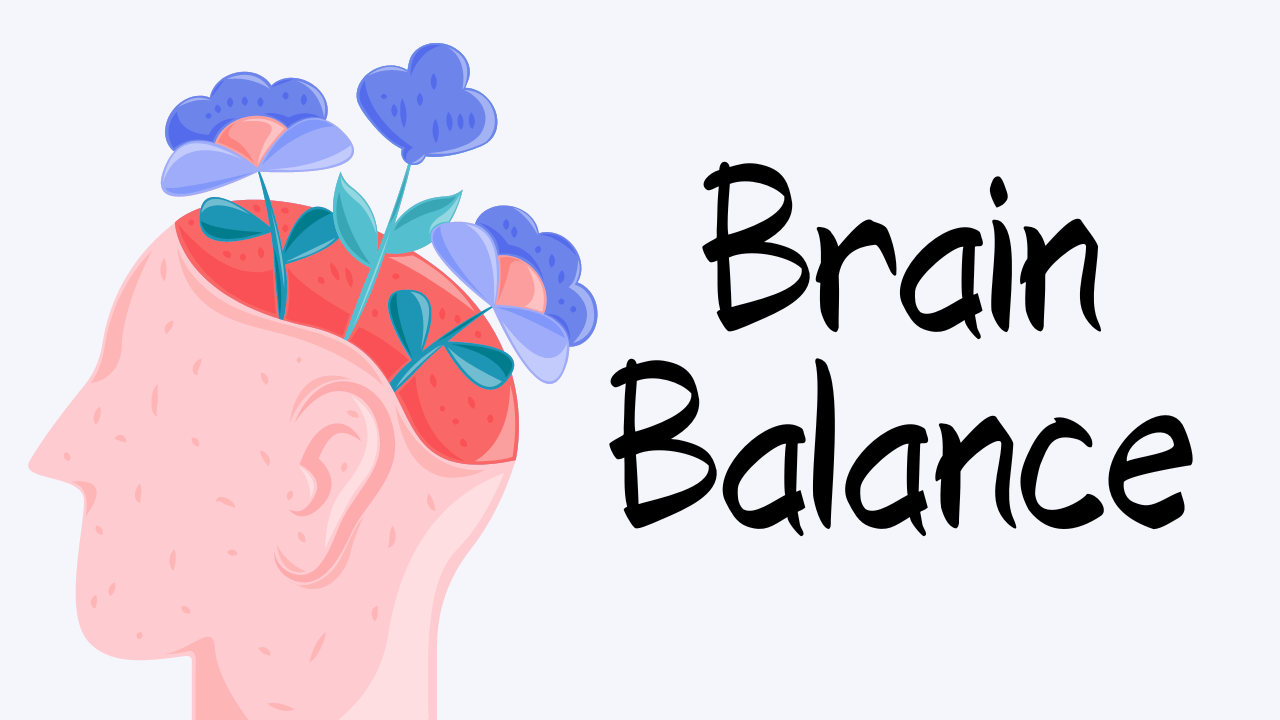
Is It Possible To Improve Brain Balance?
Living in the modern world, it’s normal to frequently feel stressed, distracted, forgetful or emotionally unbalanced...
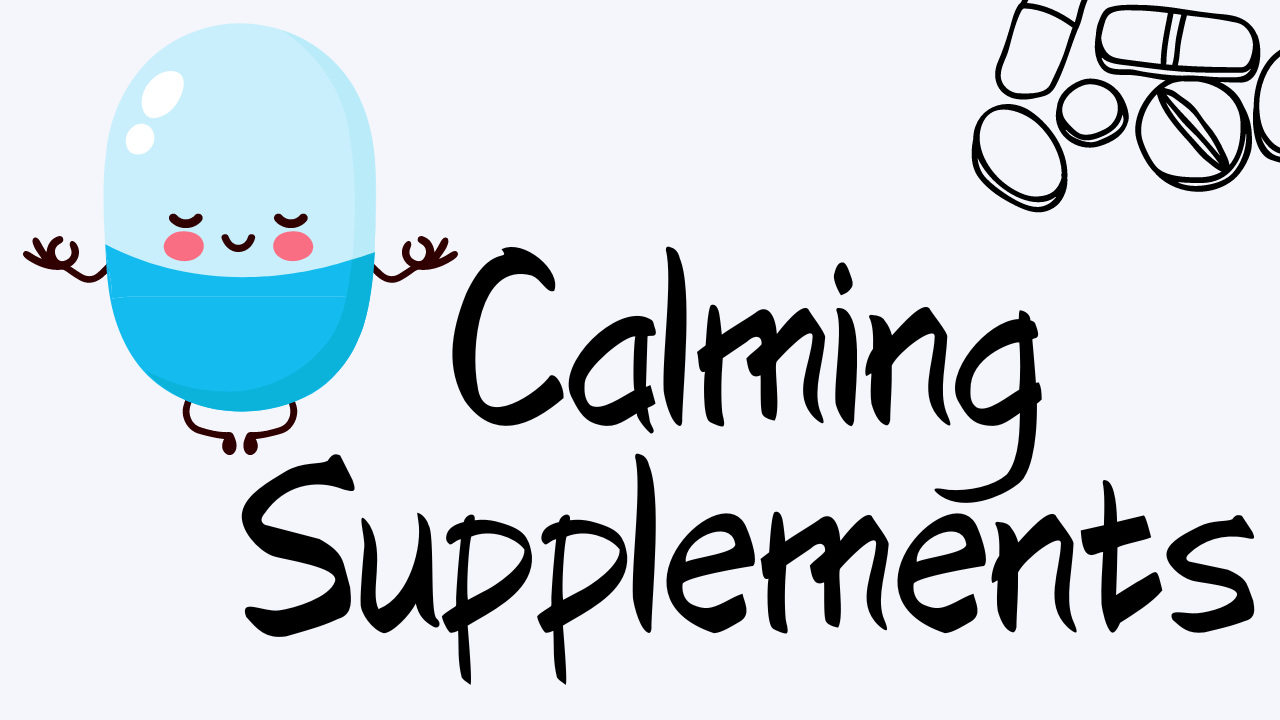
Calming Supplements
Feeling overwhelmed by constant worry, stress, or racing thoughts? You're not alone...
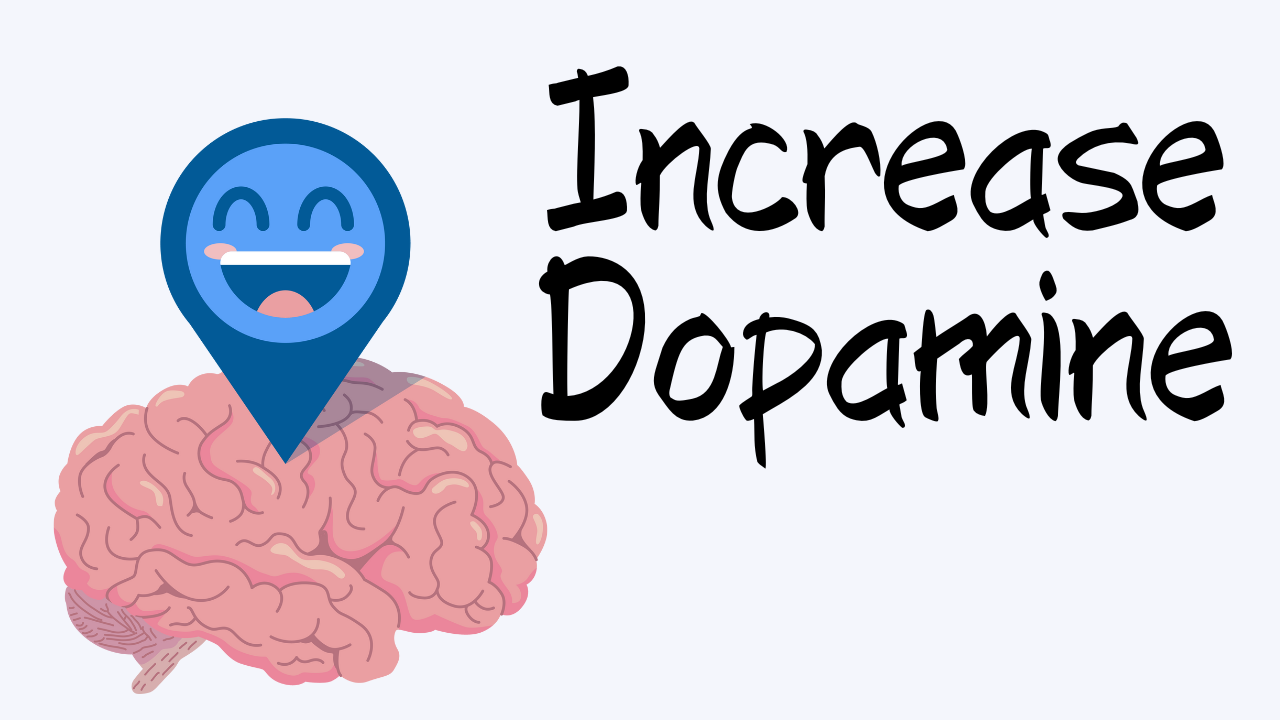
How To Increase Dopamine?
Dopamine is crucial for optimal physical and mental health. This neurotransmitter influences...